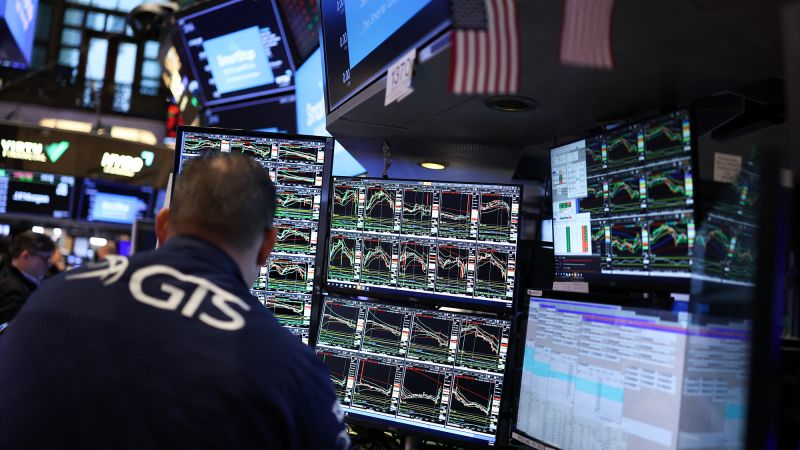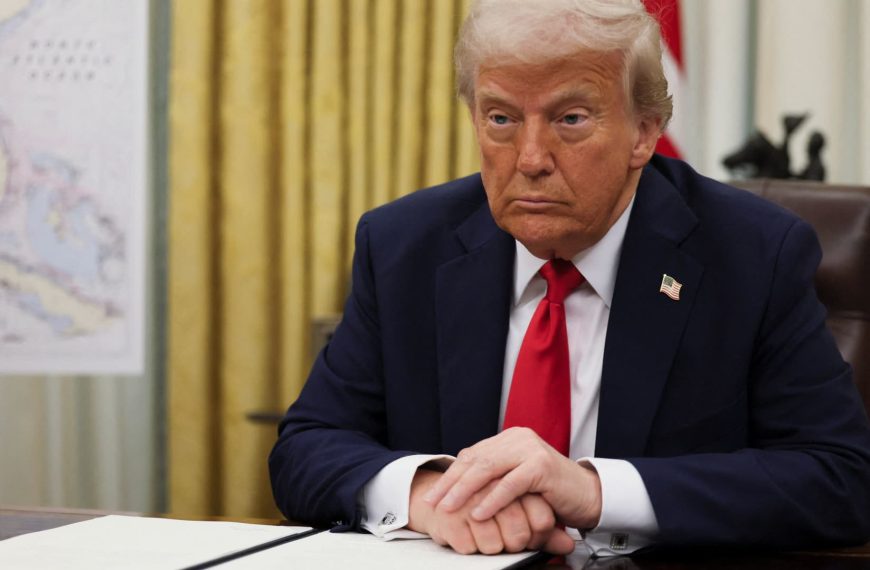U.S. Stock Market Bounces Back After Tariff Announcement
In a surprising turn of events, U.S. stock markets rallied on Wednesday, recovering from two consecutive days of significant losses. The uptick was largely driven by the Trump administration’s decision to grant a one-month exemption on auto tariffs for both Canada and Mexico, alleviating fears of a potential global trade conflict.
Stock Market Performance
After a shaky start, U.S. stocks surged following the announcement. The Dow Jones Industrial Average soared by 615 points, settling at a gain of 486 points, or 1.14%, closing at 43,007. The S&P 500 and Nasdaq Composite also experienced gains, rising 1.12% and 1.46%, respectively.
- Dow Jones: +486 points (+1.14%)
- S&P 500: +1.12%
- Nasdaq Composite: +1.46%
Positive Impact on Auto Stocks
Following the tariff exemption news, shares of major automakers saw a notable increase.
- General Motors (GM): +7.21%
- Stellantis (STLA): +9.24%
- Ford (F): +5.81%
President Donald Trump commented on the exemption during a press briefing, stating, “We spoke with the Big Three auto manufacturers and have decided to provide a one-month exemption on vehicles imported through the USMCA.”
Market Recovery Amidst Trade Tensions
This stock market rebound comes after a rough start to the week, where the Dow plummeted over 1,300 points on Monday and Tuesday. Much of this decline was attributed to the implementation of tariffs and the retaliatory actions from trading partners. On Tuesday alone, the S&P 500 lost all gains made since Trump’s reelection in November.
Interestingly, during his recent address to Congress, Trump did not mention the stock market—a key indicator of economic health he often highlights. However, he acknowledged that the tariffs could introduce "a little disturbance" to the economy.
Ongoing Market Concerns
Experts have voiced concerns over the rising uncertainty facing investors.
“Trade tensions with Canada, Mexico, and China have intensified,” noted Solita Marcelli, Chief Investment Officer for the Americas at UBS Global Wealth Management. “This has raised inflation risks and increased market volatility.”
While Wednesday’s market gains helped recoup some losses, the S&P 500 remains below its all-time high achieved just two weeks ago.
Oil Prices Decline
In related financial news, crude oil prices experienced a significant drop on Wednesday, influenced by fears of an escalating trade war and excessive supply from OPEC+. Futures for WTI crude, the U.S. benchmark, fell 2.7% to $66.40, marking its lowest price since September 2024. At one point, prices dipped to $65.22, the lowest intraday level since March 2023.
Kevin Gordon, a Senior Investment Strategist at Charles Schwab, remarked on the current climate of uncertainty, stating, “Uncertainty is the prevailing policy at this point.”
As the situation unfolds, investors will be closely monitoring further developments in trade negotiations and their implications for the broader market.











